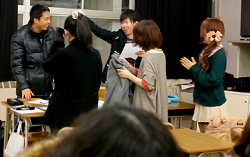Rationalist foundations of cognitive learning theory
To Plato, knowledge arises through the mind, and pure thought can be acquired through reason. Things in the external world pass through the senses, but people discover the true nature of things by reflecting on them. Reason is the highest mental capacity; people learn abstract ideas and find meaning through reason [2].
Plato’s philosophy became known as Rationalism and is evident in the writings of the French philosopher Rene Descartes. To Descartes, reason acts on information acquired from the world to change the individual. The mind and body are distinct entities, independent and different; but, somehow interacting to change the action and thoughts of the individual.
The bodies of animals and humans are mechanical, driven by biology. However, humans are distinct from animals by their ability to reason. The rational soul is responsible for individual perception, cognition, and subjectivity [12]. The rational soul holds the capacity for thought which regulates the mechanical actions of the body. In contrast, the body acts on the mind by bringing in sensory experience [2].
Rationalism generally overlaps with today’s cognitive learning theories [2], like those proposed by Gestalt psychologists Tolman and Piaget. Cognitive theory views learning as an internal mental process. This includes thinking, memory, knowing, problem-solving; those processes the learner controls for developing capacity and skills [4]. With knowledge defined as symbolic mental constructions, learning becomes a change in the individual’s knowledge.
Rationalism, particularly Descartes’ contributions, also influences the field of neurology [12]. Neurology provides insights into learning that seem to be relegating some theories to the historical dustbins while giving evidence to support others. Using the input, process, output model of the computer, research in cognitive psychology is provides two critical developments. First, a scientific foundation on the structure and function of mental processes that account for human behavior. Second, images of how and where learning occurs in the brain [5].




